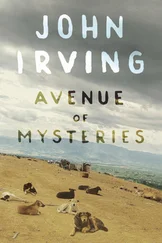Or was he mistaken? He glanced briefly in her direction in the hope that his conscience was playing tricks on him. No, that was Joni’s mother all right. But look how skinny she’d got, it was like she’d been halved; her surreally narrow hips were wrapped in brown slacks with a neat pinstripe, she wore a tailored jacket and under it a cream-colored blouse, on her feet were boots with thin, elegant heels that on the old Tineke Sigerius would have bored straight through the chassis of the train carriage. Her mid-length hair was graying, not unflatteringly, and lay in a studied knot above her weirdly sunken face, which radiated something most people would describe as decisive, independent, and even sympathetic, rather than what he suspected even back when he was still Joni’s boyfriend: ill-tempered, or downright nasty. And now it dawned on him: along with all that fat, the last bit of kindness had been boiled off, apparently for good. Although she had gained a certain femininity, the effect was undermined by an excess of loose skin around her cheeks and chin, by her baggy, pink-smeared eyelids that hung dejectedly over her lashes. She looked, in a word, bitchy.
Sigeriuses did not belong in Belgian trains, Sigeriuses belonged at home in Twente, where he had left them nearly eight years ago. It was precisely to avoid this kind of encounter that he had skipped town. It wasn’t the cuisine that had drawn him to Linkebeek, a dump just south of Brussels where, he’d thought until five minutes ago, a person could start afresh as inconspicuously as in Asunción or Montevideo. He had imagined himself sheltered and unseen, Linkebeek was a village where the trees outnumbered the inhabitants, every lopsided thing that human hands had built was concealed from view by rustling, crackling, snapping wood.
He stole a glance at Tineke’s hands. They lay in her lap, strangely fine and bony, emphatically segmented. How many tables, how many chairs, how many chests had those hands produced by now? Joni’s mother made furniture in a workshop behind the farmhouse, she did back then anyway, chic and pricey interior furnishings that found their way into villas, offices, and stately canal houses across the Netherlands. Now, the one hand took hold of a finger on the other, one after the other, and gave each a little — bitter, he presumed — tug.
They had never hit it off, he and Tineke. They didn’t gel. He thought back to the first time he and Joni slept at her parents’ house; he, as usual, lay awake for hours on end, yearning desperately for Sigerius’s wine cellar, and finally crept out of the narrow guest bed and down the open staircase, through the cool front hall and into the living room. From the kitchen he descended — routinely, he knew the way — the creaking cellar stairs and removed one of Sigerius’s self-tapped bottles from the cast-iron rack, determined to uncork it at the kitchen counter and guzzle as much of it as possible in the hope that it would knock him out. But on his way back up the stairs he heard footsteps in the living room and had to duck back into the opening. Someone entering the kitchen, cupboards being opened and shut. Standing on his tiptoes, he peered over the edge, and what he saw was shocking and repulsive: he looked out onto a hideous back, a mountainside like you saw in nature films about South Africa or the Arizona prairies, but this was a mountain of flesh. It was Tineke. He counted six deeply pleated rolls of fat between her armpits and her backside, on which, halfway down, hung a sort of orange awning, which even with the best will in the world you couldn’t call a “panty.”
Joni’s mother tore open a cardboard packet and poured its contents into her gaping mouth, half of it skittered off in all directions, chocolate sprinkles rained across the floor tiles. Once the package was empty she wrung it out, squashed it flat and shoved it deep into the trash can. He recoiled at the fleshy thud as she fell to her knees. She gathered up the spilt sprinkles with spit on her fingertips and palms. By then he had forgotten his cover, and as she sat there licking off her fingers she suddenly swung her head a quarter-turn and looked at him. “Hey,” he said, once they had both got over the initial shock. “I was thirsty.” She did not answer, she could at least have said, “I was hungry”; instead she hoisted herself up and stumbled out of the kitchen without a word, and only after he heard her bedroom door close down the hall did he return to his own bed.
And now? What could they possibly say to each other now? The train was too full, he reassured himself, for a scene, and he therefore tried to imagine how a controlled variant might proceed. So, Aaron, how are you these days? God, now that was one question he did not relish. He would rather continue his journey on the roof of the intercity than give an honest answer. He’d just spent the weekend at his parents’ in Venlo — doctor’s orders, just as everything he did was on doctor’s orders. It was awful to have to admit he was sick, that he was tethered to neuroleptics and antidepressants. How do you tell someone you’re a five-star basket case? How was he to tell this woman he was insane? That’s me, Tineke: nothing but doctor’s orders.
After the debacle in Enschede he worked briefly as a photographer for the better Brussels newspapers, but after a second severe psychosis in the winter of 2002 nearly did him in, he and his mental health counselors decided he should quit. Since then he had been driving around in a VW van refitted as a photo studio, taking individual and class pictures of primary-school children in Brussels and its surroundings. He would trace a numbered silhouette of each group photo on a lightbox. On his meticulously maintained website, fathers and mothers and grannies and grandpas could order reprints by clicking on a variety of formats, frames, and captions. The rest of his time — the hours, days, weeks, months that other men his age spent breeding, chasing careers, or maybe even raising idealistic hell somewhere — he just loafed about like some retired geezer, shuffling up the mossy steps to the town square, buying a newspaper in a secondhand bookshop appropriately called Once Upon a Time, picking up his meds in the pharmacy across from the ancient sycamore. Sometimes he snacked on a satay in the bistro at the end of the square, and then shambled back to the ridge, scuffing behind an imaginary Zimmer frame, and allowed himself to be swallowed up by his oversized, mortgage-free house.
According to his doctors he was a patient who “identified and acknowledged” his own condition, which meant he took his capsules voluntarily and thus was capable of living on his own. But that was about it. He led an entirely aimless existence. His motivation in life was avoidance: avoid stimulation, avoid excitement, avoid motivation itself.
He looked at his knees. What if he were to blurt it all out, right here in this chock-full train compartment? A detailed, concentrated, no-holds-barred monologue on his misery, on his psychosis-induced fears? A lecture, a short story, an epic poem on the immeasurable, irrational terror he had endured. The commuters hung cheek by jowl on their ceiling straps, no one could get away. If he really put his mind to it, if he were to wax eloquent, who knows, maybe the fear he described would spark over to his listeners, first to Tineke and the girl in the too-tight outfit, and then to everyone in the seats and aisles. And they would all be scared to death. His fear became everyone’s fear. Frenzied panic, as though the Semtex in his brain had finally exploded.
He and Sigerius gelled just fine. In the winter of 1995 he had latched onto an intelligent, headstrong, beautiful girl named Joni, and Joni turned out to be a full-blood Sigerius. Two months later, to his amazement, there he was paying a house call to this guy and his family. And then the truly improbable happened: the man whom the entire campus sucked up to, the man whom he, the Venlo dropout, gawked at on the TV, that man extended him a calloused judo hand. And he accepted that hand, eager but also surprised. They became friends, and he took care not to wonder too often why.
Читать дальше












